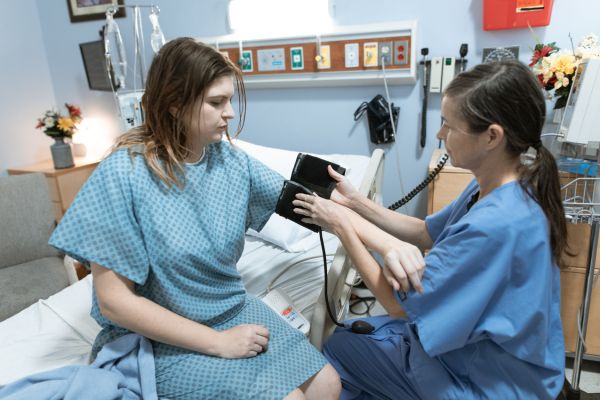Nursing Jobs In Australia With Sponsorship: A Comprehensive Guide
Australia has established itself as a premier destination for international nurses seeking career advancement, competitive salaries, and an enviable quality of life. With a growing healthcare sector and an aging population, Australian healthcare providers are actively recruiting qualified nursing professionals from overseas, often offering sponsorship to facilitate the immigration process.
This guide explores the landscape of sponsored nursing positions in Australia, detailing the requirements, application processes, benefits, challenges, and strategies for success. Whether you’re a newly graduated nurse or an experienced healthcare professional, this comprehensive resource will help you navigate your journey toward a rewarding nursing career in Australia.
Understanding Australia’s Nursing Shortage
Australia’s healthcare system faces significant staffing challenges, particularly in nursing. This shortage stems from several factors:
The aging Australian population requires increased healthcare services, putting pressure on the existing workforce. Simultaneously, a substantial portion of the current nursing workforce is approaching retirement age, creating a generational gap in expertise and numbers.
Rural and remote areas face particularly acute shortages, with many facilities struggling to attract and retain qualified nursing staff. This regional disparity has prompted targeted recruitment efforts and incentive programs specifically designed for these underserved communities.
The COVID-19 pandemic exacerbated existing shortages, highlighting the critical need for qualified healthcare professionals across all specialties. These factors have created a favorable environment for international nurses seeking opportunities in Australia.
Types of Nursing Roles Available for Sponsorship
Australia offers a diverse range of nursing positions eligible for sponsorship, catering to various specializations and experience levels:
Registered Nurses
Registered Nurses (RNs) represent the backbone of Australia’s nursing workforce. These professionals hold university qualifications and work across various healthcare settings. Specializations in high demand include:
Critical Care and Emergency Nursing: These specialized roles involve caring for patients in life-threatening conditions, requiring advanced clinical skills and the ability to make quick decisions under pressure.
Perioperative Nursing: These nurses work within surgical teams, managing patient care before, during, and after surgical procedures.
Mental Health Nursing: With increasing awareness of mental health issues, professionals in this field are highly sought after to provide specialized care for patients with psychological and psychiatric conditions.
Aged Care Nursing: As Australia’s population ages, the demand for nurses specialized in geriatric care continues to grow significantly.
Oncology Nursing: Cancer care specialists remain in high demand across Australian healthcare facilities.
Enrolled Nurses
Enrolled Nurses (ENs) work under the supervision of Registered Nurses and typically complete a diploma-level qualification. While sponsorship opportunities exist for ENs, they are less common than for RNs due to different registration requirements and scope of practice.
Nurse Practitioners
Nurse Practitioners represent the highest level of clinical nursing practice in Australia. These advanced practice nurses have completed postgraduate education and have the authority to prescribe medications, order diagnostic tests, and provide referrals. Their specialized expertise makes them valuable candidates for sponsorship, particularly in underserved areas.
Clinical Nurse Specialists and Consultants
These roles involve advanced practice nurses with expertise in specific clinical areas. They often serve as educators, leaders, and clinical resources within healthcare teams. Their specialized knowledge makes them attractive candidates for sponsorship.
Visa Options for Nurses
Australia offers several visa pathways for international nurses, each with specific requirements and benefits:
Temporary Skill Shortage (TSS) Visa (Subclass 482)
This visa serves as the primary pathway for employer-sponsored nurses. It includes three streams:
Short-Term Stream: Valid for up to two years with the possibility of one renewal.
Medium-Term Stream: Valid for up to four years with a pathway to permanent residency after three years of employment.
Labour Agreement Stream: For situations where standard visa programs don’t apply, requiring special agreements between employers and the government.
Skilled Independent Visa (Subclass 189)
This points-based visa doesn’t require employer sponsorship but demands a high points score based on factors like age, English proficiency, education, and work experience. Nursing is frequently included on the relevant skilled occupation lists, making qualified nurses eligible to apply.
Skilled Nominated Visa (Subclass 190)
Similar to the Skilled Independent Visa but requires nomination by an Australian state or territory government. Many states actively nominate nurses, especially those willing to work in regional areas.
Regional Sponsored Migration Scheme (Subclass 187)
This visa targets skilled workers willing to live and work in regional Australia, where nursing shortages are often most acute. It provides a direct pathway to permanent residency.
Employer Nomination Scheme (Subclass 186)
This permanent residency visa requires employer sponsorship and is available to nurses who have worked for their sponsoring employer on a temporary visa for at least three years, or through direct entry for highly qualified candidates.
Registration Requirements for International Nurses
Before securing employment and sponsorship in Australia, international nurses must obtain registration with the Nursing and Midwifery Board of Australia (NMBA), overseen by the Australian Health Practitioner Regulation Agency (AHPRA). This process includes:
Qualification Assessment
The NMBA assesses your nursing qualifications to determine their equivalence to Australian standards. Graduates from certain countries with recognized educational systems may have a more streamlined process.
English Language Proficiency
Unless exempt, international nurses must demonstrate English language proficiency through approved tests:
International English Language Testing System (IELTS): Requiring at least a 7.0 in each component (reading, writing, listening, and speaking).
Occupational English Test (OET): Requiring at least a B in each component.
Test of English as a Foreign Language internet-Based Test (TOEFL iBT): Requiring specific minimum scores across all components.
Pearson Test of English Academic (PTE Academic): Requiring minimum scores in each communicative skill.
Skills Assessment
The Australian Nursing and Midwifery Accreditation Council (ANMAC) conducts skills assessments for migration purposes, evaluating your education, training, and professional experience against Australian standards.
Registration Process
After meeting these requirements, you must apply for registration with the NMBA, providing documentation of your qualifications, work experience, identification, and character references.
Provisional Registration and Supervised Practice
Some international nurses may initially receive provisional registration, requiring a period of supervised practice before obtaining full registration.
Finding Sponsorship Opportunities
Securing a sponsoring employer requires a strategic approach:
Healthcare Recruitment Agencies
Specialized agencies that focus on healthcare placements can connect international nurses with potential sponsors. These agencies often have established relationships with Australian healthcare providers and understand the specific requirements for different facilities and regions.
Direct Applications to Healthcare Providers
Many Australian hospitals, aged care facilities, and healthcare networks advertise positions directly and indicate their willingness to sponsor suitable candidates. Public health services in each state, private hospital groups, and aged care providers are all potential sponsors.
State Health Departments
Each Australian state and territory has its own health department that recruits nurses for public hospitals and health services. Many have specific international recruitment programs:
NSW Health (New South Wales) Queensland Health Victoria Department of Health WA Health (Western Australia) SA Health (South Australia) Tasmania Department of Health ACT Health (Australian Capital Territory) NT Health (Northern Territory)
Regional and Rural Opportunities
Rural and remote areas often offer enhanced sponsorship opportunities and additional incentives for international nurses. Programs like the Rural Health Professionals Program provide support for healthcare professionals willing to work in underserved communities.
Networking and Professional Associations
Connecting with professional nursing associations in Australia can provide valuable insights and networking opportunities:
Australian Nursing and Midwifery Federation (ANMF) Australian College of Nursing (ACN) Specialty nursing organizations relevant to your area of expertise
Preparing a Competitive Application
To stand out in the application process, international nurses should focus on:
Comprehensive Resume/CV
Highlight relevant clinical experience, specializations, and achievements. Tailor your CV to Australian standards, emphasizing your experience with specific equipment, procedures, and patient populations relevant to your target employer.
Cover Letter
Craft a compelling cover letter that explains your interest in working in Australia and how your skills align with the specific needs of the sponsoring institution. Address any potential concerns about relocation and demonstrate your commitment to contributing to Australian healthcare.
Reference Letters
Obtain strong professional references from supervisors who can speak to your clinical skills, work ethic, and adaptability. Australian employers value references from those who have directly supervised your nursing practice.
Evidence of Continuing Professional Development
Document your ongoing education, certifications, and professional development activities. Australian healthcare employers value nurses who demonstrate a commitment to lifelong learning and staying current with best practices.
Interview Preparation
Research the Australian healthcare context, common protocols, and terminology. Prepare for both clinical and behavioral questions, emphasizing your ability to adapt to new environments and healthcare systems.
The Sponsorship Process
Understanding the employer sponsorship process helps set realistic expectations:
Employer Nomination
The healthcare provider must nominate you for a position that appears on the relevant skilled occupation list. They must demonstrate they’ve attempted to fill the position locally before sponsoring an overseas worker.
Labour Market Testing
Employers must show evidence of having advertised the position to Australian citizens and permanent residents before offering sponsorship. This requirement ensures sponsorship is only used when genuine skill shortages exist.
Sponsorship Costs
Be aware of the costs involved, which may be covered by either the employer or the applicant:
Sponsorship application fees Nomination fees Visa application fees Skills assessment fees Health examinations Character checks Medical insurance
Processing Times
Visa processing times vary depending on the type of visa, complexity of the application, and current processing loads. Allow for several months from application to approval, though priority processing may be available for critical healthcare roles.
Obligations and Restrictions
Sponsored visas typically include specific conditions, such as:
Working only for the sponsoring employer (or getting approval for any change) Maintaining the same role and location Notifying authorities of any changes in circumstances Meeting health insurance requirements
Regional and Rural Nursing Opportunities
Australia’s regional and rural areas offer unique opportunities for international nurses:
Enhanced Sponsorship Pathways
The government provides additional incentives and streamlined processes for skilled workers, including nurses, willing to work in regional areas. Regional visas often offer quicker pathways to permanent residency.
Professional Development
Regional practice often provides broader clinical experience across multiple specialties, accelerating professional growth and developing versatile skills.
Financial Incentives
Many regional employers offer higher salaries, relocation assistance, accommodation support, and other benefits to attract qualified healthcare professionals.
Community Integration
Smaller communities often provide a welcoming environment for international professionals, making social integration easier than in larger cities.
Work-Life Balance
Regional areas typically offer shorter commutes, lower cost of living, and access to Australia’s renowned natural environments, enhancing quality of life.
State-Specific Opportunities
Each Australian state and territory offers unique opportunities for international nurses:
New South Wales
As Australia’s most populous state, NSW offers diverse opportunities across metropolitan Sydney and regional centers. The NSW Health system is the largest healthcare employer in Australia, with numerous facilities actively recruiting international nurses.
Victoria
Victoria’s healthcare system offers opportunities in Melbourne and regional cities like Geelong, Bendigo, and Ballarat. The state has specific international recruitment initiatives and supports professionals settling in both urban and regional communities.
Queensland
With a rapidly growing population, Queensland offers positions across Brisbane, Gold Coast, and regional areas. The state particularly needs nurses in tropical and remote regions, often providing incentives for these placements.
Western Australia
WA offers opportunities in Perth and across its vast regional areas. The state’s mining industry creates unique healthcare needs, with many facilities offering attractive fly-in-fly-out arrangements or regional placements with premium compensation.
South Australia
Adelaide and regional SA provide a quieter lifestyle with strong professional opportunities. The state actively recruits international healthcare professionals for its public health system and aged care facilities.
Tasmania
Australia’s island state offers a unique lifestyle and close-knit professional community. Its smaller population means more varied clinical experience and often stronger professional relationships.
Northern Territory
The NT offers unique experience working with Indigenous communities and tropical health issues. International nurses can develop specialized skills in remote healthcare while enjoying the Territory’s distinctive lifestyle.
Australian Capital Territory
Canberra’s healthcare system offers positions within a planned city environment. The public health system actively recruits international professionals for its expanding facilities.
Specialties in High Demand
Certain nursing specialties have particularly high sponsorship potential:
Critical Care Nursing
Intensive care, emergency, and trauma nursing remain priority areas for sponsorship. The specialized training and experience required for these roles create ongoing demand for qualified professionals.
Perioperative Nursing
Surgical and theater nurses are consistently in high demand across Australia, with public and private hospitals actively recruiting internationally.
Psychiatric and Mental Health Nursing
With growing recognition of mental health needs, practitioners in this field find numerous sponsorship opportunities across inpatient and community settings.
Aged Care Specialists
Australia’s aging population creates ongoing demand for nurses with geriatric expertise, particularly those experienced in dementia care, palliative care, and complex aged care management.
Midwifery
Qualified midwives with appropriate registration can find opportunities in both urban hospitals and regional birthing units, with many facilities offering sponsorship.
Pediatric Nursing
Specialists in child health remain in demand, particularly in specialized children’s hospitals and regional centers requiring pediatric expertise.
Oncology Nursing
Cancer care specialists are actively recruited across Australia’s expanding oncology services, with both public and private sectors offering sponsorship opportunities.
Salary and Benefits for Sponsored Nurses
Understanding the compensation package helps with financial planning:
Salary Ranges
Nursing salaries in Australia vary based on experience, specialization, and location:
Entry-level Registered Nurses typically earn AUD 60,000-75,000 annually Experienced Registered Nurses earn AUD 80,000-95,000 annually Specialized nurses and those in leadership positions can earn AUD 100,000-130,000+ Rural and remote positions often include additional allowances and incentives
Benefits Package
Beyond base salary, consider the complete benefits package:
Superannuation (retirement fund) contributions (typically 11-12% of salary) Shift allowances and overtime rates Professional development allowances Annual leave (typically 4 weeks plus public holidays) Personal/sick leave provisions Parental leave options Salary packaging opportunities (tax benefits)
Cost of Living Considerations
Balance salary against living costs in different locations:
Major cities like Sydney and Melbourne offer higher salaries but significantly higher living costs Regional areas may offer lower salaries but substantially reduced housing costs and overall expenses Some employers provide housing assistance or subsidized accommodation, particularly in remote areas
Cultural Transition and Professional Integration
Adapting to Australia’s healthcare culture requires preparation:
Australian Healthcare System
Familiarize yourself with Australia’s mixed public-private healthcare model, including Medicare (the public healthcare system), private health insurance, and how different facilities operate within this framework.
Nursing Practice Differences
Understand how nursing roles, responsibilities, and protocols may differ from your home country. Australian nursing practice emphasizes evidence-based care, patient autonomy, and collaborative healthcare teams.
Workplace Culture
Australian workplaces typically value:
Direct but respectful communication Collaborative decision-making Work-life balance Informal interpersonal relationships while maintaining professional standards Initiative and problem-solving abilities
Professional Development and Career Progression
Australian healthcare facilities typically support continuing education and career advancement through:
In-service education programs Formal postgraduate study opportunities (often with employer support) Clear career progression pathways Leadership development programs
Life in Australia
Consider broader lifestyle factors:
Climate variations across different regions Housing options and costs Transportation systems Educational opportunities for family members Community integration resources Recreational activities and lifestyle benefits
Challenges and How to Overcome Them
Anticipate common obstacles in the sponsorship journey:
Registration Delays
Start the registration process early, maintain regular communication with AHPRA, and ensure all documentation is complete and accurate. Consider engaging a migration agent specialized in healthcare professions to navigate complex requirements.
Visa Processing Times
Submit complete, well-documented applications and respond promptly to any requests for additional information. Check for priority processing options for healthcare professionals, which are often available.
Recognition of Experience
Clearly document your experience with detailed reference letters and position descriptions. Be prepared to explain how your previous experience translates to Australian healthcare contexts.
Cultural Adjustment
Connect with nursing associations and international nurse networks before arrival. Many healthcare facilities offer cultural orientation programs specifically designed for international staff.
Professional Integration
Actively participate in workplace training and orientation programs. Seek out mentorship opportunities and engage with professional nursing organizations to build your local network.
Family Relocation
Research schooling options, spousal employment opportunities, and community resources before arrival. Many healthcare employers offer family relocation assistance and support services.
Success Stories
Learning from others’ experiences provides valuable insights:
Maria’s Journey from the Philippines
Maria, a critical care nurse from the Philippines, secured sponsorship with a major Sydney hospital after completing her registration and skills assessment while still overseas. Her key to success was obtaining specialized certifications in ventilation management and continuous renal replacement therapy, making her an attractive candidate despite strong competition.
Raj’s Regional Experience
Raj, an emergency nurse from India, chose a regional hospital in Queensland for his sponsored position. While initially concerned about moving to a smaller community, he found the broad clinical experience accelerated his career development. After two years, he received permanent residency and now serves as a nurse educator.
Sarah’s Midwifery Path
Sarah, a midwife from the United Kingdom, secured sponsorship with a birth center in regional Victoria. Her experience with low-intervention birth models was particularly valued, allowing her to contribute to developing new midwifery protocols while enjoying Australia’s more autonomous midwifery practice scope.
Michael’s Career Progression
Michael, a mental health nurse from Canada, began with a sponsored position in a public hospital in Perth. Within three years, he had obtained permanent residency and completed a postgraduate certificate in addiction nursing, allowing him to move into a specialized role with higher compensation and greater clinical autonomy.
Planning Your Relocation
Practical considerations for moving to Australia include:
Timeline Planning
Create a comprehensive timeline working backward from your target relocation date:
NMBA registration process (3-6 months) Visa application and processing (2-4 months) Notice period with current employer Housing arrangements School enrollment for children if applicable Financial preparations
Financial Preparation
Budget for initial expenses:
Airfare and relocation costs Temporary accommodation Transportation Living expenses until first paycheck Registration and visa fees Professional liability insurance
Housing Arrangements
Research housing options in your destination community:
Temporary accommodation upon arrival (serviced apartments, extended-stay hotels) Rental market in your target area Common lease terms and requirements Areas with good access to your workplace School catchment considerations if relevant
Banking and Finances
Set up Australian financial services:
Opening bank accounts (possible to do before arrival with some banks) Understanding tax obligations Superannuation arrangements Transferring funds internationally Credit history considerations
Healthcare Coverage
Arrange appropriate healthcare coverage:
Medicare registration (if eligible) Private health insurance options Gap coverage considerations Prescription medication coverage
Long-term Career Development in Australia
Planning your professional future in Australia:
Pathways to Permanent Residency
Most sponsored nurses pursue permanent residency through:
Employer Nomination Scheme after meeting work requirements Skilled Independent Visa after gaining Australian work experience State Nomination pathways Regional-specific permanent visa options
Advanced Practice Opportunities
Australia offers various advanced practice pathways:
Clinical Nurse Specialist roles in your specialty area Nurse Practitioner qualification (requiring postgraduate study and supervised practice) Nurse Educator and Clinical Facilitator positions Management and leadership progression
Educational Advancement
Australian universities offer numerous postgraduate options:
Graduate certificates and diplomas in specialized areas Master’s degrees in advanced practice, education, or management Research degrees for those interested in academic careers Professional doctorate programs
Private Practice Opportunities
Some nursing specialties offer private practice potential:
Nurse Practitioners can establish private clinics (with some Medicare rebate eligibility) Midwives can provide community-based care with appropriate credentialing Mental health nurses can offer private therapeutic services Consulting opportunities in specialized fields
Leadership Development
Healthcare facilities actively develop clinical leaders:
Formal leadership programs Management training pathways Policy and quality improvement roles Project management opportunities
Resources and Support Networks
Valuable resources for international nurses include:
Professional Organizations
Connect with relevant nursing bodies:
Australian Nursing and Midwifery Federation Australian College of Nursing Specialty-specific nursing colleges and associations State-based nursing organizations
International Nurse Support Networks
Many facilities and regions have established networks specifically for international nurses, providing peer support, social connections, and practical advice from those who have navigated similar transitions.
Regulatory Information
Access official sources for registration and practice requirements:
Nursing and Midwifery Board of Australia (NMBA) Australian Health Practitioner Regulation Agency (AHPRA) Australian Nursing and Midwifery Accreditation Council (ANMAC)
Immigration Resources
Stay informed through official channels:
Department of Home Affairs immigration website SkillSelect portal for skilled migration updates Regional Certifying Bodies for regional visa information
Continuing Professional Development
Access ongoing learning opportunities:
Hospital-based education programs University continuing education Professional association workshops and conferences Online learning platforms specific to Australian nursing practice
Conclusion
Australia offers international nurses exceptional professional opportunities combined with an enviable lifestyle. The country’s nursing shortage, particularly in specialized areas and regional communities, creates sustained demand for qualified overseas professionals.
While the registration and visa processes require careful planning and patience, the rewards—professional growth, competitive compensation, and quality of life—make Australia an attractive destination for nursing careers. By understanding the pathways, requirements, and strategies outlined in this guide, international nurses can successfully navigate the journey to a fulfilling sponsored position in Australia’s healthcare system.
With thorough preparation, realistic expectations, and a proactive approach to registration and sponsorship, international nurses can build rewarding careers while enjoying Australia’s diverse communities, natural beauty, and high standard of living. The journey requires an investment of time and resources, but for thousands of international nurses who now call Australia home, the professional and personal benefits have proven well worth the effort.







